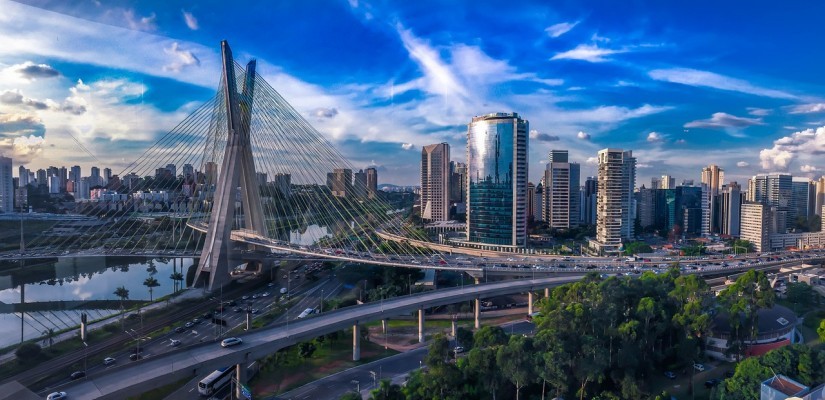Echoing the ongoing global trend, Brazil chose as President a right-wing nationalist in their latest election. The President-Elect, former Army paratrooper Jair Messias Bolsonaro, rode to victory on a wave of support fueled by Brazilian anger over ongoing corruption scandals and fear of violent crime. Less than two months after surviving an assassination attempt that put him in the hospital for over three weeks, the 63 year old Bolsonaro, dubbed “The Trump of the Tropics” for his fiery rhetoric and impolitic statements, is now preparing to take control of the world’s fourth-largest democracy.
Bolsonaro triumphed in an election that in the end was his to lose. His most formidable potential opponent, the extremely popular former President Luiz Inácio Lula da Silva, had been barred from running by the Brazilian Superior Electoral Court. The next-most challenging opponent, da Silva’s replacement, Fernando Haddad, came in second in the first-round of voting, making it to the run-off with Bolsonaro. Haddad then fell behind in the final months of the campaign and despite a last-minute tightening of the polls ended up taking a little less than 45% of the vote in the final round of voting.
The shadow of corruption loomed large over this election. The ongoing corruption investigation known as Operation Car Wash has for four years now driven headlines and led to the arrests of major political figures. It was due to the results of Operation Car Wash that former President da Silva, known as “Lula”, was arrested and subsequently banned from running for President. Bolsonaro thus likely owes his presidency to the investigation.

The Brazilian stock market, which had been rising for weeks on the expectation of Bolsonaro’s victory, rose to a momentary high on the news of his victory. There is hope that Bolsonaro, who has named investment banker and Chicago School economist Paulo Guedes as a key advisor, will prove to be a needed tonic for the Brazilian economy. Guedes has suggested that this government will seek to erase Brazil’s budget deficit, cut taxes, privatize state-owned companies, and boost investment in infrastructure. The incoming administration has also indicated that it views Brazil’s pension system as being in urgent need of reform and suggested that implementing such reforms will be a key priority.
Perhaps most consequentially of all Bolsonaro’s policies is his hardline stance on China. Bolsonaro has spoken out aggressively against Chinese activity in Brazil, claiming that the Chinese “Are not buying in Brazil, but buying Brazil.” He spoken out against Chinese efforts to invest in Brazilian energy and infrastructure companies and he has even gone to far as to visit Taiwan in a gesture that the Chinese claimed violated the One China policy. This tough talk is paired with statements of admiration for the United States and for the current leader of the US in particular. Bolsonaro, who pledged during his candidacy to be a “great ally” of the US, has spoken highly of US President Donald Trump, saying that the two men have both faced similar attacks and that during the US Presidential Election, he was hoping that Trump would win. Trump, for his part, congratulated Bolsonaro on his victory over Twitter and added that Brazil and the United States will work together on trade and military matters.

Given the similarities between the stated policies of the two men, it is not beyond the realm of possibility to assume that US President Trump has gained a steadfast ally in his trade war against China. Brazil is the eighth-largest economy in the world and engages in roughly 60 billion worth of imports and exports with China. While this is far less than the 558 billion in imports and exports between the US and China, it is nevertheless an infusion of economic muscle that President Trump will be delighted to have on his side.
Historically, the US has treated Brazil as an ally, but not as a very important one. However, the election of Bolsonaro may have opened the window for a deepening of the US-Brazil relationship. Both Bolsonaro and Trump have similar policy goals, have demonstrated a preference for selecting military men for high cabinet positions, have voiced a distaste for both Chinese economic activity in their respective nations and “the lying media”, and have spoken well of the other. The similarities and mutual overtures indicate significant potential for a strong working relationship between the two men. Given National Security Advisor John Bolton’s recent statements that Bolsonaro will be “a like-minded partner” whose election should be seen as “a welcome development”, it is clear that the White House is exploring the possibilities for future co-operation with the Brazilian nationalist who promised to be “a great ally” of the US. Future co-operation between the two nations on matters such as tariff reduction, a joint venture between Boeing and Brazilian aircraft-maker Embraer, and some sort of partnership with NATO are potential initiatives that might be expected in the coming years.
